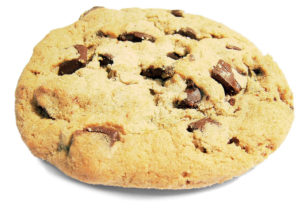 This is so true.... Researchers found that American adults eat about one meal's worth of snacks over the course of each day. That's about 400 to 500 calories, or almost one quarter of daily calories. Also, the snacks are typically poor nutritionally - with lots of sugar and low in fiber.
This is so true.... Researchers found that American adults eat about one meal's worth of snacks over the course of each day. That's about 400 to 500 calories, or almost one quarter of daily calories. Also, the snacks are typically poor nutritionally - with lots of sugar and low in fiber.
Bottom line: If you snack, then try to have nutritionally good snacks, such as fruit or nuts (and not just chips, cookies, and candy). This way the snacks will be a source of nutrients and fiber (all good!).
From Science Daily: US adults eat a meal's worth of calories of snacks in a day
Snacks constitute almost a quarter of a day's calories in U.S. adults and account for about one-third of daily added sugar, a new study suggests.
Researchers analyzing data from surveys of over 20,000 people found that Americans averaged about 400 to 500 calories in snacks a day - often more than what they consumed at breakfast - that offered little nutritional value.
Though dietitians are very aware of Americans' propensity to snack, "the magnitude of the impact isn't realized until you actually look at it," said senior study author Christopher Taylor, professor of medical dietetics in the School of Health and Rehabilitation Sciences at The Ohio State University.
"Snacks are contributing a meal's worth of intake to what we eat without it actually being a meal," Taylor said.
Survey participants who were controlling their type 2 diabetes ate fewer sugary foods and snacked less overall than participants without diabetes and those whose blood sugar levels indicated they were prediabetic.
Researchers analyzed data from 23,708 U.S. adults over 30 years of age who had participated from 2005 to 2016 in the National Health and Nutrition Examination Survey.
The survey collects 24-hour dietary recalls from each participant - detailing not just what, but when, all food was consumed. Respondents were categorized according to their HbA1c level, a measure of glucose control, into four groups: nondiabetes, prediabetes, controlled diabetes and poorly controlled diabetes.
Among the whole survey sample, snacks accounted for between 19.5% and 22.4% of total energy intake - while contributing very little nutritional quality.
In descending order of proportion, snacks consisted of convenience foods high in carbohydrates and fats, sweets, alcoholic beverages, non-alcoholic drinks that include sugar-sweetened beverages, protein, milk and dairy, fruits, grains and, lagging far behind, vegetables.
Finding that people with diabetes had healthier snacking habits was an indicator that dietary education is beneficial to people with the disease.
